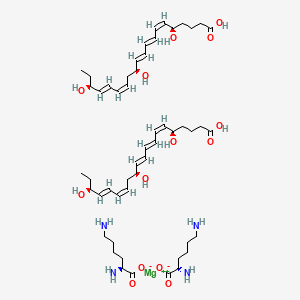Table of Contents
Magnesium lysinate is one of the most bioavailable and well-tolerated forms of supplemental magnesium available. It can be used to address deficiencies and optimize your magnesium levels to support a range of processes throughout the body.
In this guide, we will explore the potential benefits and risks of magnesium lysinate, the research behind its use, and optimal dosages to support your health and wellness.
Magnesium may support blood glucose control in patients with type II diabetes, who often have low levels of magnesium, which exacerbates the condition. Magnesium assists with regulating insulin function and enabling glucose to be transported from blood and into cells for utilisation and storage. The insulin receptors on cells require the mineral to function. In cases of deficiency, cells cannot effectively utilise insulin, leading to elevated blood glucose levels associated with diabetes.
One analysis of eight clinical trials found that diabetic patients who were administered magnesium supplements experienced significant reductions in their fasting blood sugar levels. While initial research is promising, more long-term studies are needed in order to fully assess the mechanisms by which magnesium assists with blood sugar regulation and insulin function.
Magnesium Lysinate for Sleep
Magnesium supplementation may improve the quality and duration of sleep by aiding in physical and mental relaxation. The mineral has been found to bind to GABA (gamma-aminobutyric) receptors to soothe nerve activity and promote better, more restful sleep.
According to a 2021 research review by Trusted Source, magnesium supplements may help treat fibromyalgia. And a 2016 analysis of studies by Trusted Source notes that they might help reduce the risk of stroke, heart failure, and diabetes. The results indicate that magnesium supplementation increases vagus activity and may reduce mental and physical stress to promote better sleep and regulate sympathetic and parasympathetic nervous systems to reduce restlessness, irritability, and other mood disorders as well.
Another study of 46 senior adults found that those regularly taking magnesium supplements fell asleep quicker than the seniors in the control group and experienced decreased symptoms of insomnia and enhanced sleep quality. Animal research has found that magnesium can regulate the production of melatonin, a hormone that controls the body’s sleep-wake cycle, but further research is needed to gauge similar effects in human test models.

Reducing Cardiovascular Disease Risk
There is a growing body of research linking low magnesium levels to an elevated risk of developing cardiovascular disease. One research paper notes that participants with the lowest magnesium levels have the highest risk of premature death, especially cardiovascular disease-related mortality.
Lowering Blood Pressure
There is research to suggest that magnesium supplements may effectively lower blood pressure. One study noted that patients taking 450 mg of magnesium per day experienced decreases in both their systolic and diastolic blood pressure readings by an average of 20.4 and 8.7 points, respectively.
Moreover, a meta-analysis of 34 studies identified that an average dose of 368 mg of magnesium notably reduced both systolic and diastolic blood pressure readings, both in patients with hypertension and in healthy adult participants. Magnesium’s anti-hypertensive abilities seem to be more pronounced in people with active hypertension.
| Age | Females | Males |
|---|---|---|
| 14–18 years | 360 mg | 410 mg |
| 19–30 years | 310 mg | 400 mg |
| 31 years and older | 320 mg | 420 mg |
Potential Risks and Side Effects of Magnesium Lysinate
Excessively elevated magnesium levels are uncommon, as the kidneys of healthy adults typically eliminate excess magnesium to maintain optimal levels in the body. However, while side effects are rare, they can occur, especially for those who take high doses of magnesium in supplemental form.
The following qualified health claims for conventional foods and dietary supplements are included in the FDA’s letter of enforcement discretion:
- “Inconsistent and inconclusive scientific evidence suggests that diets with adequate magnesium may reduce the risk of high blood pressure (hypertension), a condition associated with many factors.”
- “Consuming diets with adequate magnesium lysinate may reduce the risk of high blood pressure (hypertension). However, the FDA has concluded that the evidence is inconsistent and inconclusive.”
- “Some scientific evidence suggests that diets with adequate magnesium may reduce the risk of high blood pressure (hypertension), a condition associated with many factors. The FDA has concluded that the scientific evidence supporting this claim is inconsistent and not conclusive.”
Some of the most common side effects of excess magnesium consumption include:
- Low blood pressure
- Facial flushing
- Nausea
- Vomiting
- Arrhythmia and irregular heartbeat
- A sensation of weakness in the muscles
In severe cases of excess magnesium lysinate, there’s an elevated risk of cardiac arrest.
Magnesium supplements are generally considered to be safe for healthy adults to take and pose few risks to health. However, be sure to consult a medical professional before starting any new supplement regimens to determine the ideal daily dose to meet your needs. This is especially true for anyone taking medications, including antibiotics, and those with diagnosed heart or kidney dysfunction.




